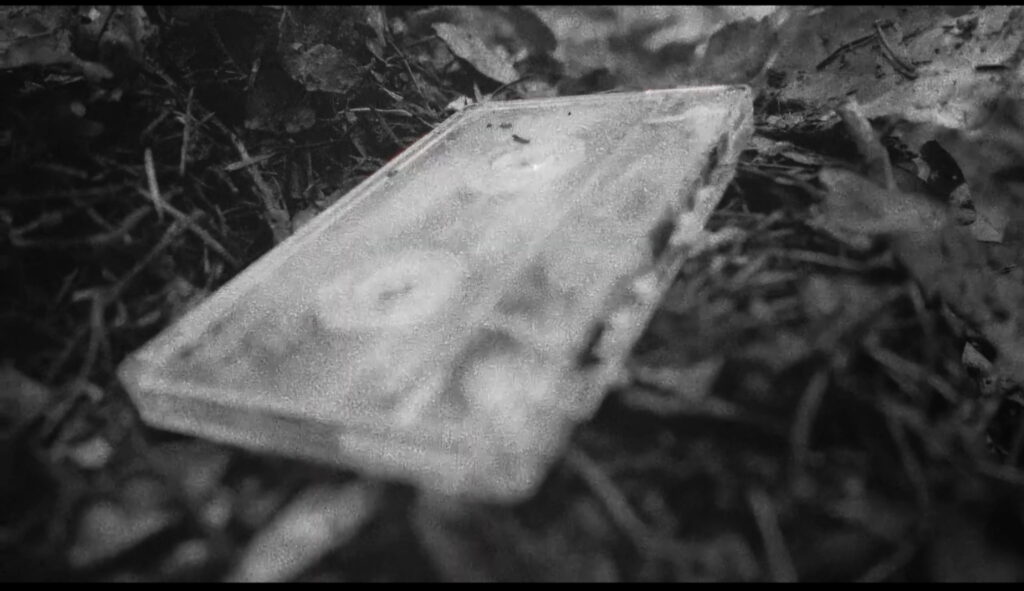Dream Eater
Nightmares turn into reality when Dream Eater comes around. Mallory (Mallory Drumm) and her partner Alex (Alex Lee Williams) take a trip to a snowed-in cabin after Alex’s parasomnia hits a tipping point. Per doctor’s orders, this week-long retreat is supposed to be Alex’s mental health reset. But things go from bad to worse when Mallory realizes that Alex’s dreams are the least of their worries.
Written and directed by Jay Drakulic, Mallory Drumm, and Alex Lee Williams, Dream Eater succeeds at properly delivering some frights but becomes slightly frustrating toward the end of the third act. This frustration comes down to Mallory’s character, and while it may be the point of her actions, it does reach a tipping point. Even though Alex is lashing out, with apologies always soon to follow, Mallory continually gives him the benefit of the doubt. It gets to the point where you beg for her to leave so you can stop listening to their bickering. But it’s hard to fault Mallory for refusing to give up on the man she loves.
Alex Lee Williams Shines in Creepy Sleepwalking Role
The horror itself is effective and felt genuinely creepy. Alex Lee Williams helps carry that horror facade with his sleepwalking, which feels oddly realistic. This is coming from someone who has never been around a sleepwalker. Dream Eater’s framing device comes from Mallory’s attempt at getting back into the swing of her filmmaking career, so it’s not hard to rationalize why the camera is still rolling.
There is a little bit too much non-diegetic sound and b-roll, but the final product left me feeling a bit nervous about going to bed that night. But I constantly wondered, at what point do you put yourself and your mental health before someone who is unwilling or unable to help themselves?
Distort
Distort follows James (James Devlin), a musician who heads out to the woods to try and find a unique sound for his newest album. The serene landscape turns ominous when James finds cassette tapes from 1992. On the tapes, James learns that a Trinity College student named Sarah (Charlotte Hall) came to these woods to learn more about an urban legend called The Weeping Man. As the tapes quickly descend into chaos, James learns he, too, might be in danger.
Cassette Tapes and Urban Legends in Distort
Richard Waters’ latest feature is found footage on top of found cassette. Personally, I love it when found footage films add layers to the found-like authenticity of the final product. The addition of the cassette tapes lays a great foundation for Distort’s dream-like (or should I say nightmare-like) atmosphere. Thankfully, there isn’t much of James’ music throughout the film because it throws off the pacing. I appreciate how Waters uses the tapes to reveal the story to the audience and James simultaneously.
My only two issues with Distort are the abrupt ending and the mid-credits stinger reveal. Coming in at a brisk hour and 16 minutes, Distort comes and goes before you feel the action crescendo. You may feel like you’ve missed something as the credits roll, but the mid-credits scene puts a nice bow on it all. But I wanted more than that. It would have felt more cohesive to work in the mid-credits scene at the proper end of the film. Including it doesn’t do much to help the authenticity Waters built with the cassette tapes.
Overall, I left Distort with a feeling of wanting more, but still content with what I got. The scares worked when they were there and, at the end of the day, were effective. But I wouldn’t have minded if the film was a few minutes longer.
